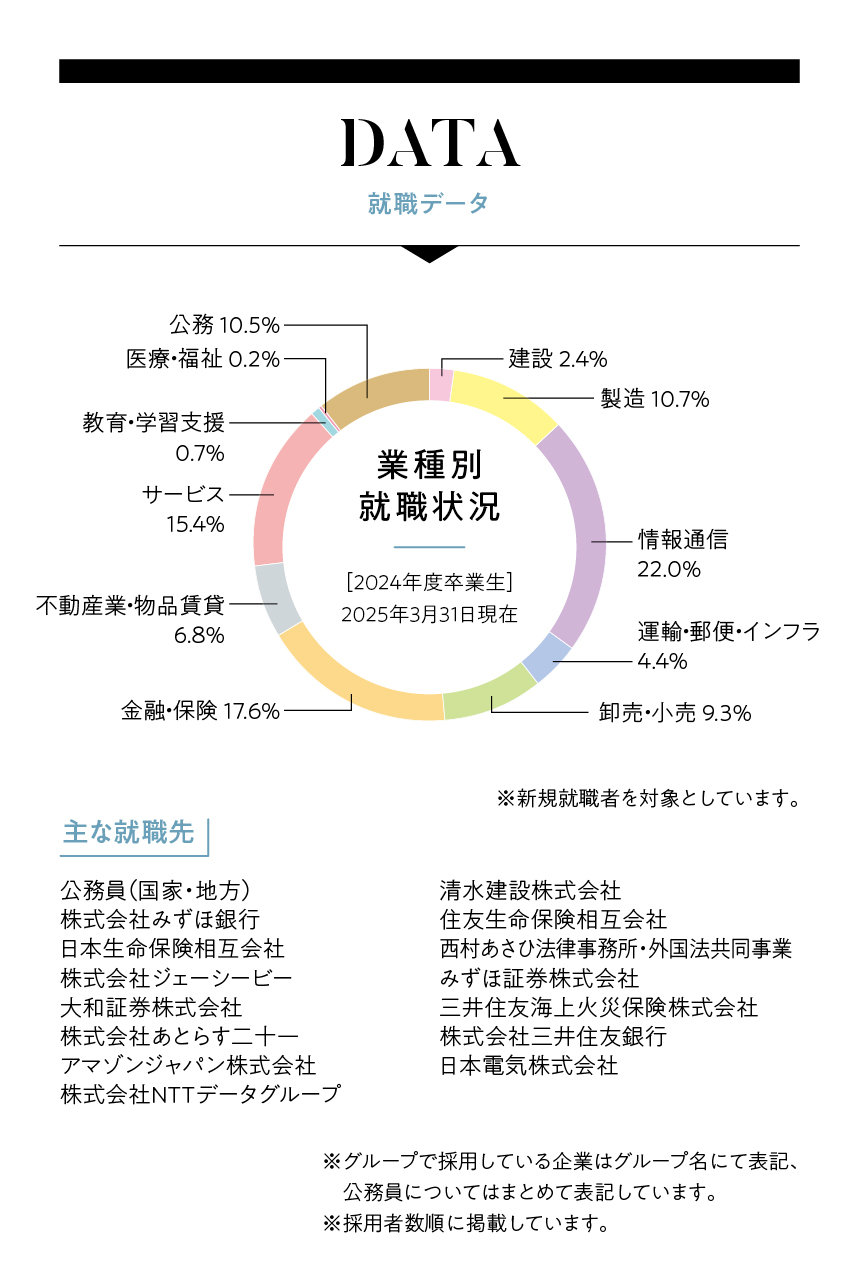- ホーム
- 学部の特色・進路就職(法学部)
学部の特色・進路就職
- MENU -
FEATURES 法学部の特色
2学科制と柔軟なカリキュラム
法学部は、「法学科」と「ヒューマンライツ学科」(2022年4月開設)という2つの学科を擁しています。法学科では、1・2年次で、法学の全体像をつかみ、木の「幹」となる基礎をしっかりと身につけます。そのため、段階的な学びの基礎として、必修科目・基礎科目を1・2年次に集中的に配置しています。それを土台として、3・4年次では多様な専門科目で専門性を高めていくことができます。ヒューマンライツ学科では、人権問題を理解し問題解決能力を養うために、隣接社会科学の知見も重視しており、法学系の必修科目のほか、政治学や経済学、公共政策の入門科目に加え、社会調査の方法を学ぶ科目が1年次に配置されています。2年次以降は、様々な人権問題について具体的に学び、解決を模索するための知識や思考法を学ぶ多様な授業が開講されます。このように、両学科とも、基礎を大切にしつつ、学生一人ひとりが興味や関心に基づいて多種多様な専門科目を自由に選択することができます。
「演習」科目と「実習・実務」科目の充実
法学科もヒューマンライツ学科も、数多くの「演習」「実習・実務」科目を設置しています。法学部における主体的・能動的学修の基礎を作ることができるよう、学科共通の演習科目である「導入演習」を1年次に配置しているほか、2年次には基礎分野の演習・実習科目を履修することができ、3年次以降は専門分野の調査研究などを通じて学びを深めることができます。特に3年次・4年次に配置している「演習A~C」「演習D(卒業論文)」は、原則として、最終的に卒業論文を執筆する2年間一貫体制の演習科目であり、学生一人ひとりの学びを完成させていくことになります。
学部独自の海外研修プログラム
法学部は、正規科目として単位認定の対象となる学部独自の海外研修プログラムを設置しています。大学の夏期休業期間(8~9月)または春期休業期間(2~3月)に実施する短期留学であり、オーストラリア、アメリカ、中国、イギリスという4か国にある法学部の協定締結校などにおいて、それぞれの国・地域の法制度や社会の実情を学ぶことができます。詳細は以下の「法学部独自の海外研修プログラム」をクリックしてください。
OUR INITIATIVES 学部の取り組み
法学教育センター
法学部では2021年度から、これまでの法学部附置法律指導室を改組して、新たに法学教育センターを設置しました。
法学教育センターは、法学部及び大学院法学研究科の学生へのキャリア支援として、公務員試験や各種資格試験の受験、大学院受験などを志す人への様々なサポートを行うほか、大学院法務研究科(法科大学院)を修了した研修生の司法試験受験もサポートします。また、法学部における学習支援も行い、必要に応じて、専任教員との連絡・調整などを行います。
〇 法学教育センターの事務室は17号館10階1019に置かれています。
〇 開室曜日・時間は、授業期間中の平日10:30〜18:30(昼休み13:00〜14:00を除く)です。なお、開室時間帯は変更になることがあります。
〇 ローライブラリーが17号館10階1023に置かれており、今後、各種試験の過去問集などを順次揃えていく予定です。
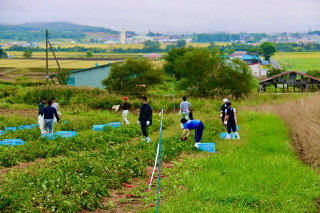
法務省連携研修
人権、刑事政策、自治体政策、公私協働などの事項について、大学における講義で学習する理論が社会でどのように実践されているのかを知り、実感することによって、理論と実践の違いを理解することを目的とするインターンシップです。具体的には、少年院仮退院者等を対象として、就農による自立を支援するため農業等の職業訓練を行い、保護観察官による生活指導や社会技能訓練等を実施している沼田町就業支援センター(北海道雨竜郡沼田町)を訪問し、行政機関・地元住民・入所少年との懇談、農業実習体験を行います。

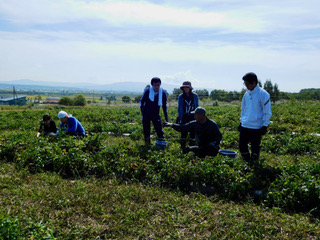
現地研修に先立って法務省による講義が行われ、この講義に関するレポートを作成するほか、現地研修の終了後も総括レポートを作成することとなっており、理論と実践の違いに関する体験学習を通して、法を学ぶ意義を再確認します。
この研修は、法務省、立地自治体の協力の下に行われる、大学の正規授業科目としては国内唯一のプログラムです。研修先の北海道沼田町就業支援センターは、少年院仮退院者等を対象として、就農による自立を支援するため農業等の職業訓練を行い、保護観察官による生活指導や社会技能訓練等を実施している施設です。この研修プログラムでは、この就業支援センターの立地自治体である沼田町を訪問し、行政機関・地元住民・入所少年との懇談、農業実習体験を行います。実際に入所少年とコミュニケーションをとりながら農作業を行い、一般的には色眼鏡で見られがちな非行少年の実態に触れることができます。また、立地自治体である沼田町の保護司や支援団体の方のお話を聞くことで、少年達の更生を支えるコミュニティーの有りようや立地に至るまでの過去の葛藤を学び、社会が非行少年を受け入れることの困難さと可能性に向き合います。
プログラムの後半には、現役の保護監察官を交えて、具体的事例において、自分が保護観察官であったらどのように対応するかを事例を通じて検討する「事例演習」も組み込まれています。実際の少年とのコミュニケーション体験を踏まえたうえで、各自の対応を提案し、意見を交わすことで、個別の場面での対処の難しさを学びつつ、現役の保護観察官の見解も聞きながら、望ましい対応を探っていきます。(担当教員:府川繭子准教授)

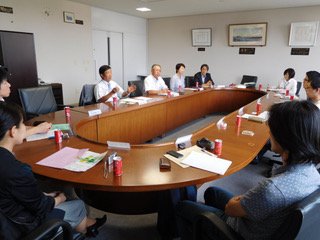
(参考)スケジュール
1.事前講義
2.実習開始前講義
3.沼田町就業支援センターの事業説明・内見
4.農場見学
5.農業実習体験①
6.関係団体「すずらんの会」「保護司会」「明日萌の会」との懇談会
7.沼田町の町政に関する学習
8.農産加工場見学
9.農業実習体験②
10.社会貢献活動(老人施設での社会奉仕体験等)
11.沼田町就業支援センター入所少年との交流会
12.事例検討会
13.総括

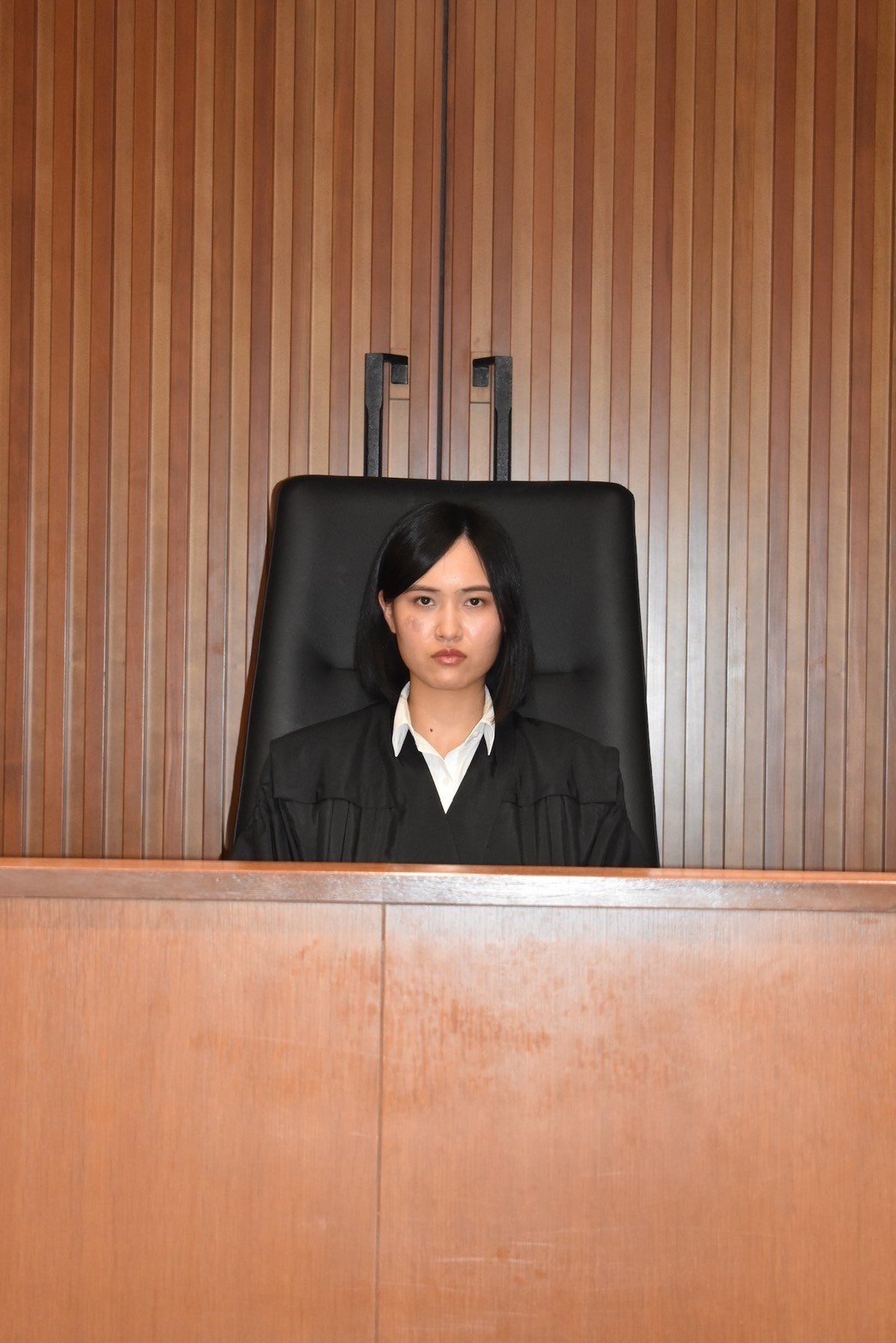
青学法廷劇
青学法廷劇は「連鎖劇」と呼ばれる形式を用いた法律エンタメです。連鎖劇は、生の「演劇」と「映像(映画)」とを組み合わせた表現形式で、上演の際には、学内に設置された「模擬法廷」が「劇場」に様変わりします。音楽・美術・照明などの舞台効果も多く用いられ、近寄りがたい・難しいと思われがちな法律(裁判)の世界がドラマチックに描き出されます。
毎年、夏のオープンキャンパスで4回から6回上演し、高校生・高卒生の方、保護者の方など多くの方にお楽しみいただいています。ゼミの学生は、苦楽を共にして1つの舞台を作り上げることを通じて、かけがえのない仲間を得ながら「大人」へと成長します。(担当教員:大石泰彦教授)

MOVIES 青学法廷劇
-
青学法廷劇 第9弾
-
-
青学オープンキャンパス2023!「模擬授業/法廷劇」
CAREER 卒業後の進路
主な就職先、業種別就職状況は以下のとおりです。
